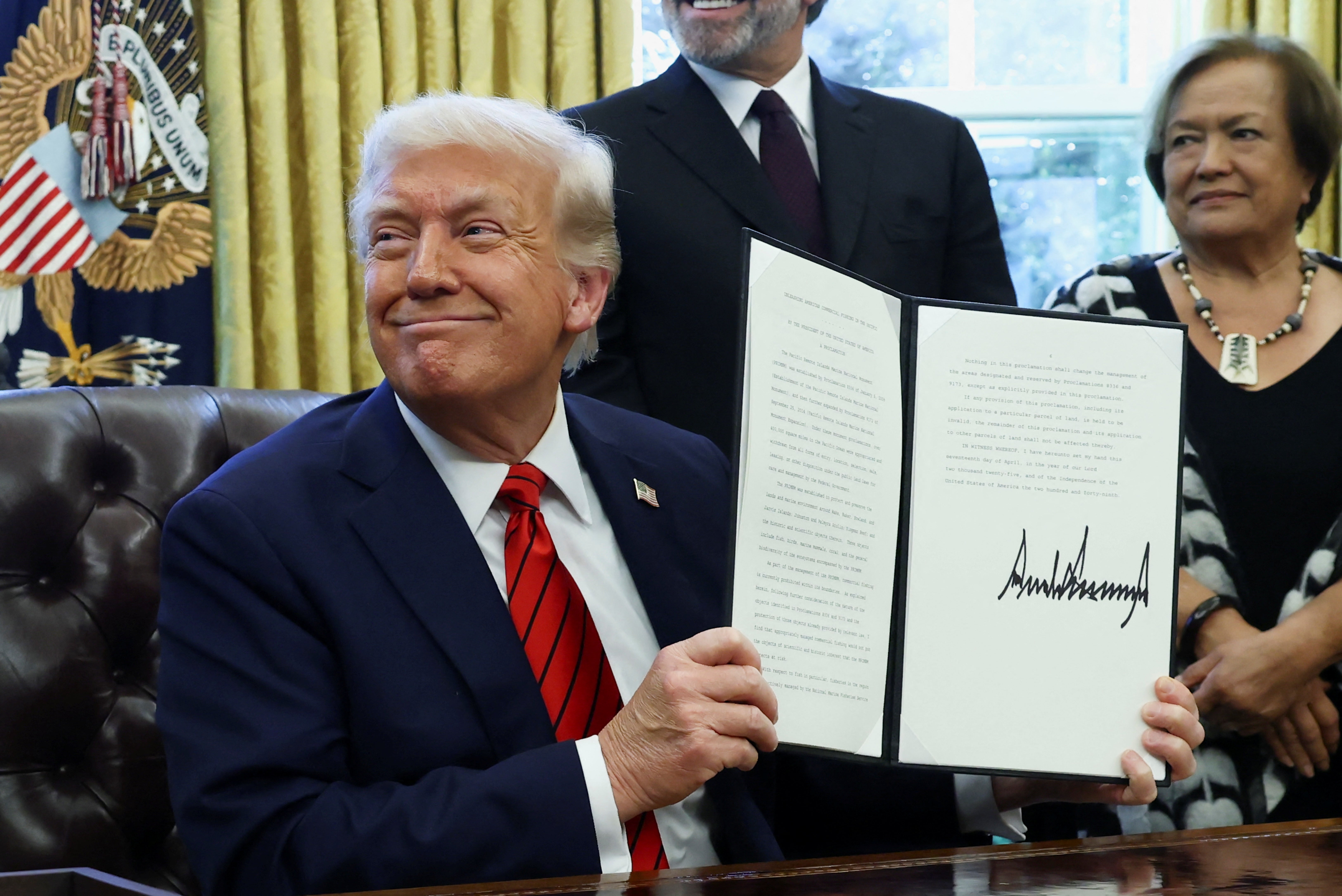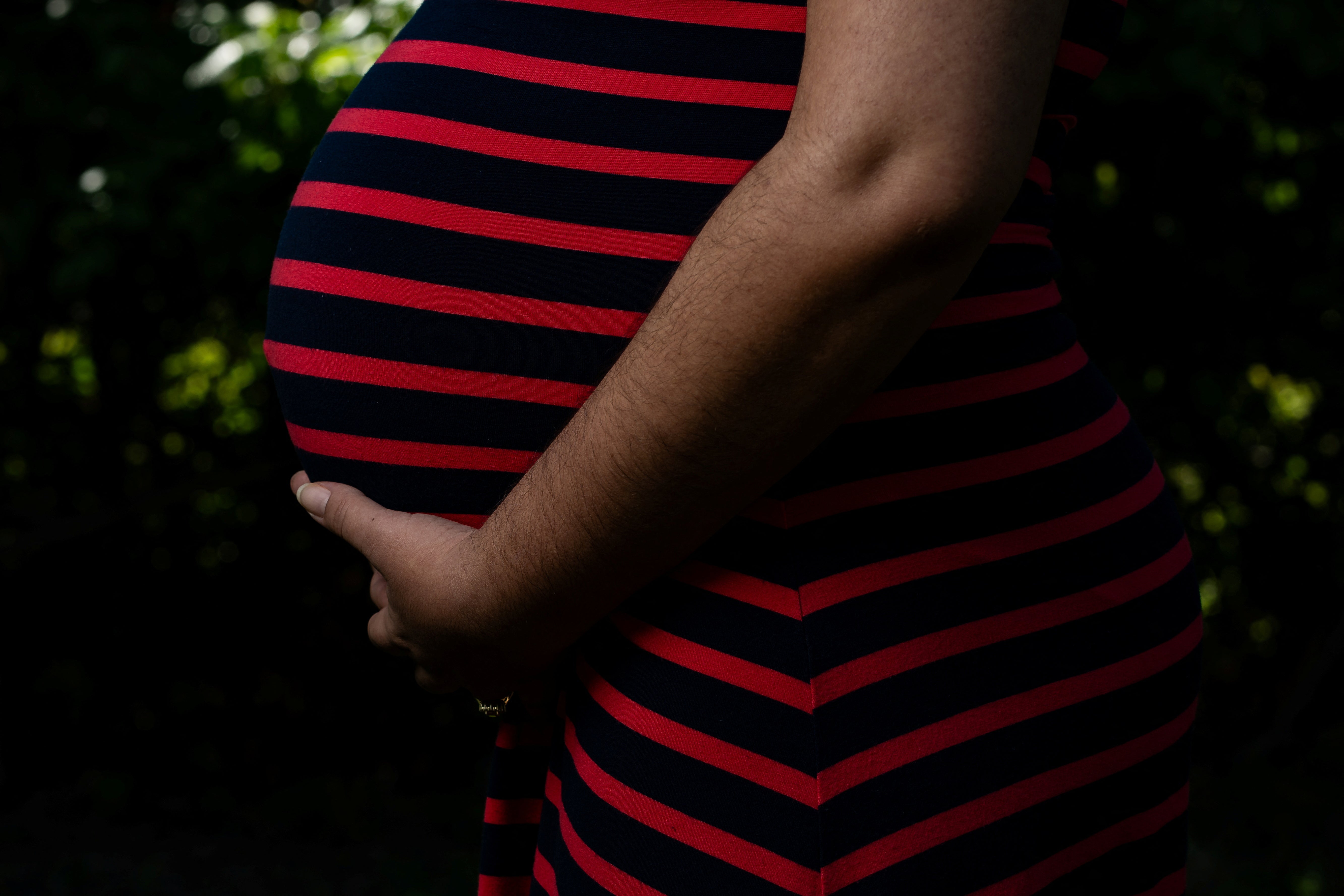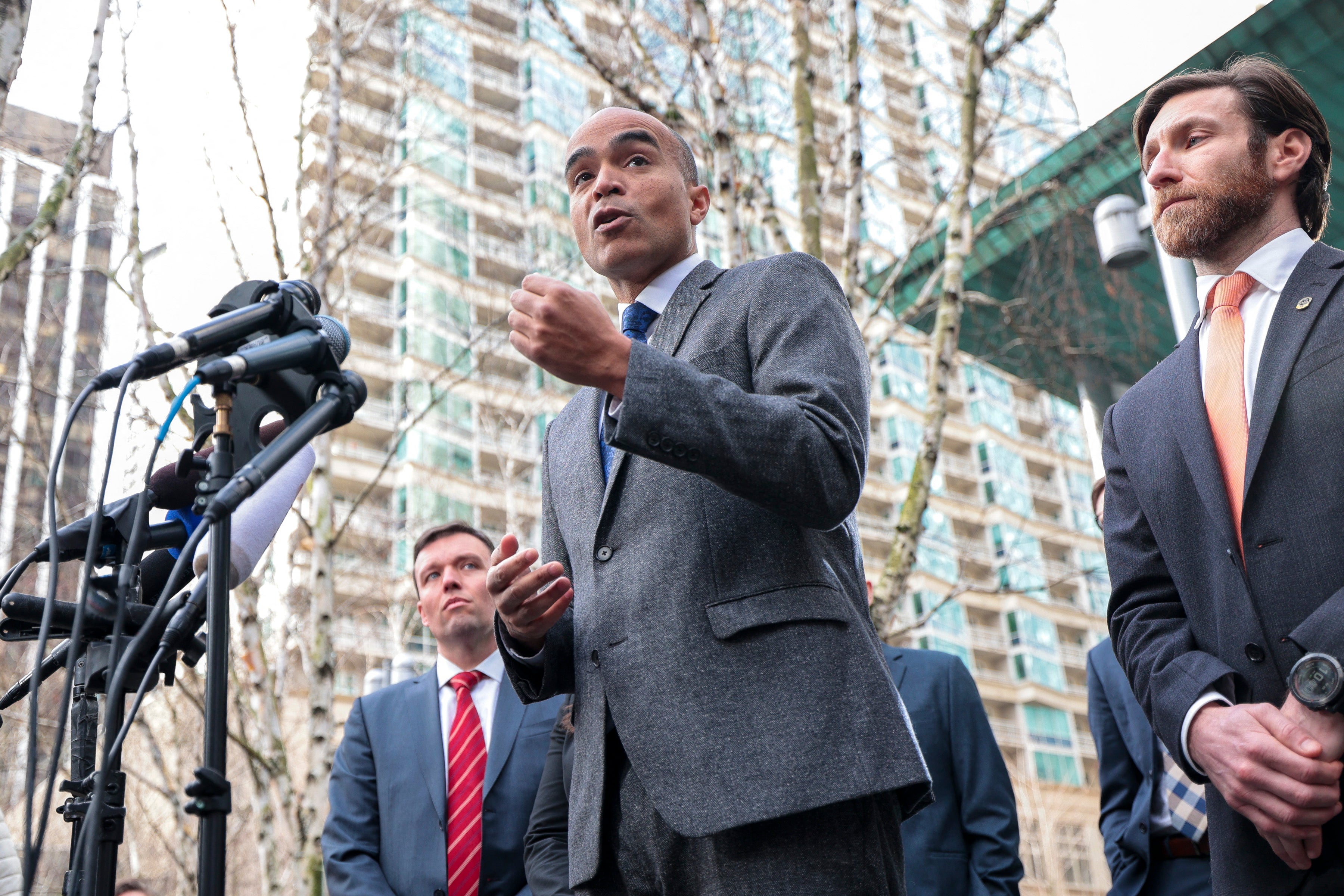Donald Trump’s attempt to deny citizenship to certain children of immigrant parents is now in front of the Supreme Court.
The justices, who heard oral arguments last month in a case against the Trump administration for the first time since he returned to the White House, will decide whether court orders blocking the president’s executive order ending birthright citizenship can stand.
Trump’s order, among the first he signed when he entered office, aims to unilaterally redefine the Constitution and federal law by denying citizenship to certain children born to immigrant parents.
But the administration is using the case to target what has become a major obstacle to advancing Trump’s agenda: federal judges blocking aggressive executive actions.
The government wants to reduce the federal judiciary’s power to issue nationwide injunctions, cutting off one of the few critical checks and balances against an administration that critics warn is mounting an ongoing assault against the rule of law.
But wait, this isn’t about birthright citizenship?
It is, and it isn’t. The question at the center of the case asks whether three federal judges legally issued nationwide injunctions that blocked the order from taking effect.
But a decision that limits court rulings against the president’s birthright citizenship order opens a backdoor to begin stripping constitutional rights.
“Monica” is among several pregnant plaintiffs. She and her husband arrived in the United States from Venezuela more than six years ago. She is expected to give birth in August.
It’s “impossible” for her child to get Venezuelan citizenship. There’s no consulate where she could apply, and because she’s seeking asylum, she cannot leave the country without being barred from returning, she wrote in court documents.
“Maribel” has lived in the country for 18 years after fleeing El Salvador. She and her husband have two U.S. citizen daughters, and she is pregnant with their third child, who she fears will not have the same rights to citizenship, “and could even be subject to deportation, separating my family,” she wrote.
The 14th Amendment plainly states, “all persons born or naturalized in the United States, and subject to the jurisdiction thereof, are citizens of the United States and of the state wherein they reside.”
Under the terms of Trump’s order, children can be denied citizenship if a mother is an undocumented immigrant or is temporarily legally in the country on a visa, and if the father isn’t a citizen or a lawful permanent resident.

Damning court orders from three federal judges — affirmed by three federal appeals court panels — have blocked the measure from taking effect nationwide.
Trump — and conservative justices on the court — are eager to resolve questions about the scope of nationwide injunctions to remove judicial branch obstacles from implementing his agenda. Last year, Justice Neil Gorsuch said it’s “a question of great significance.” In 2018, Justice Clarence Thomas wrote that “if their popularity continues, this Court must address their legality.” Eight years later, they just might.
Why does Trump want to end nationwide injunctions?
More than half of the injunctions issued over the last 70 years were against the Trump administration, according to the Harvard Law Review, as Trump pushed the limits of his authority.
Judges have blocked federal funding cuts and mass firings of federal workers, as well as Trump’s executive order banning transgender service members from the U.S. military, among others.
In Trump’s first term in office, his administration faced 64 injunctions, compared to 14 injunctions against Joe Biden and 12 against Barack Obama
The administration faced 17 within the first two months of his second term alone.
Trump’s allies have themselves relied on nationwide injunctions to do the very same thing they are now commanding the Supreme Court to strike down.

Stephen Miller repeatedly deployed his America First Legal group to request nationwide injunctions against the Biden administration, and he often won. His group sought injunctions to strip temporary protected legal status for tens of thousands of immigrants and to end vaccine requirements for federal employees. Miller once claimed that “defying a federal court injunction is an impeachable offense.” Now, he suggests they’re unconstitutional.
Critics accused right-wing legal groups of “judge shopping” a lawsuit that challenged the government’s approval of a widely used abortion drug, which was filed in a Texas district where the only judge was a Trump-appointed anti-abortion advocate. In 2023, Judge Matthew Kacsmaryk issued an injunction that caused chaos among abortion providers and pharmacists.
What happens if the Supreme Court sides with Trump?
A ruling that removes nationwide injunctions from the federal judiciary’s toolbelt would impede efforts to hold the administration accountable for unconstitutional actions.
Government attorneys argue judges should only be allowed to stop a challenged policy from impacting the plaintiffs who brought the case, not all Americans who could be impacted.
A ruling that limits the scope of injunctions in this case could create an unconstitutional patchwork application of the 14th Amendment, where certain immigrant children are citizens in one state and not in another.
That’s “nonsensical,” according to Mirian Albert, senior attorney with Lawyers for Civil Rights.
“It would just be chaos to try to implement that,” she told The Independent.
Lawyers could then be forced to bring class-action lawsuits instead, Albert said.

Legal scholars argue it would be virtually impossible to question nationwide injunctions without getting to the meat of Trump’s attempt to redefine birthright citizenship.
“The difficult task in front of the Supreme Court is the line-drawing exercise,” according to former federal prosecutor Joyce Vance.
A case challenging birthright citizenship “is one of the strongest contexts imaginable for arguing in favor of permitting nationwide injunctions,” she wrote. “Otherwise, there would be a patchwork quilt of citizenship creation, depending on the state in which a person was born.”
How did this even get to the Supreme Court?
Filed shortly after Trump signed his executive order, a flurry of lawsuits rely on stories of pregnant immigrant women who fear their unborn children could live in a stateless limbo that threatens to tear apart families.
For more than a century, the 14th Amendment's citizenship clause was interpreted to apply to anyone born in the United States, regardless of their parents' legal status.
But right-wing legal groups elevated a once-fringe argument against the concept, which features prominently in the Heritage Foundation’s Project 2025. Heritage and the Claremont Institute, among others, have argued that the word “jurisdiction” in the 14th Amendment means only a person’s political allegiance to the United States, and that the allegiance of children born to immigrant parents is to their parents’ home countries.
According to states that sued the administration, if the order takes effect, more than 150,000 children born annually in the United States would be denied citizenship.
“Adelina” was six months pregnant when she joined one of several legal challenges against the administration. She and her partner, who are both undocumented, have a child who is a U.S. citizen.
“It pains her to think that one of her children will have more benefits than the other, even though they were both born here,” according to court filings.
This story was first published May 15
Trump admin wants to fine those in US illegally $1,000 per day until they leave
Justice Amy Coney Barrett rips Ketanji Brown Jackson over birthright dissent
Trump cuts off all trade talks with Canada citing ‘blatant attack’
J.M. Smucker plans to remove artificial colors from its jams and other products by the end of 2027
Marjorie Taylor Greene offers rare GOP praise of Mamdani’s campaign
Top economist and admits president may have outsmarted us all on tariffs







